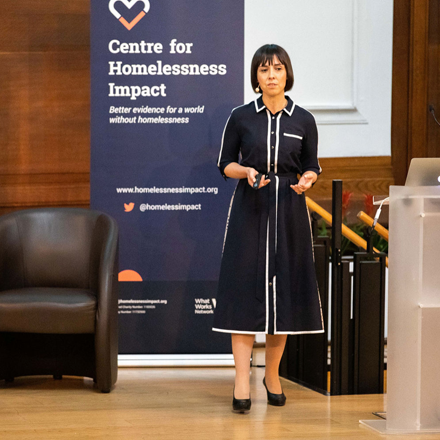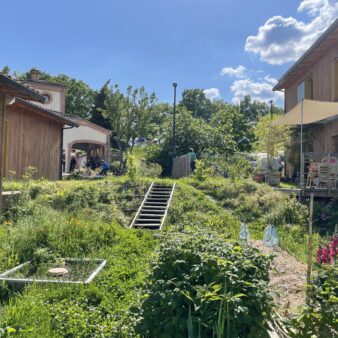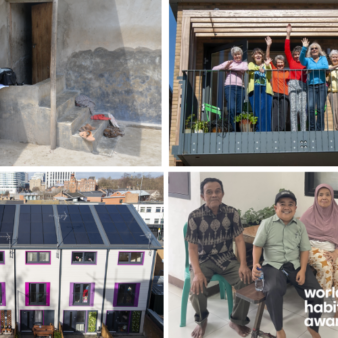
Dr Lígia Teixeira, from the Centre for Homelessness Impact, argues that changes in the way we talk about homelessness are a crucial component of ending it for good.
How will we end homelessness? And what role can we play?
At the Centre for Homelessness Impact we improve the lives of those experiencing homelessness by ensuring that policy, practice and funding decisions are underpinned by robust evidence. We believe that by combining the ‘heart’ and the ‘head’ – applying data and reason to our work – we can turn our good intentions into lasting impact and end homelessness sustainably.
This thinking underpins our suite of evidence tools and informed the development of our SHARE Framework, which we believe offers the best chance of creating lasting impact in ending homelessness.
A key strategy within the framework is to make ending homelessness a shared priority among all members of society. Until we do, evidence suggests that progress will be slow. What’s needed is more public support for the policies and actions required to end homelessness for good. How do we do that? By communicating more effectively and improving the general public’s understanding that homelessness is not inevitable.
We communicate about homelessness all the time, attempting to explain its structural causes in housing, welfare and social services policy. However, the public continues to see homelessness as a problem that is individually driven by poor choices, behaviour or simple bad luck.
So where does this come from? Sadly this is a tradition that has been fueled by funding imperatives. Emergency and crisis narratives that focus on the most extreme cases of homelessness are the most successful in persuading the public to make charitable donations. This reinforces unhelpful stereotypes and erodes the common empathy between the wider population and people experiencing homelessness.
This continued framing of homelessness allows society to ‘other’ those people who experience homelessness. But as Ryan McCuaig of Who Cares? Scotland has said, “You can’t just write people off as ‘hard to reach’, or as having ‘complex needs’. We must listen to all voices of lived experience.”
So, what can be done about it? In order to break this harmful cycle, it’s imperative that we reframe how we talk about homelessness and shift the narrative from one of individual ‘bad behaviour’ or ‘bad luck’ to one of systemic effectiveness. The challenge for our sector is to give people the tools to start telling different stories.
New words and phrases can inspire new attitudes, new ideas and signal a shift in how we choose to approach an issue like homelessness. These ideas were explored in depth through the collaborative work of Crisis and the FrameWorks Institute, whose 2018 report, Reframing Homelessness in the United Kingdom, acknowledges that ‘engrained cultural perspectives can act as obstacles to building public will for the large-scale solutions necessary to address homelessness effectively.’
To address this, it proposes a Common Experience meta-frame that includes three core ideas.
People’s fundamental commonality: Homeless people are, like all of us, human beings and members of society. The right values, metaphor and stories can orient people to what we all share.
The lived experience of homelessness: Metaphor and stories about various types of housing insecurity, when told in the right ways, can help people understand what it feels like to be homeless.
The role of systems: The values, metaphor and solutions that help to make up the frame encourage systemic thinking about how homelessness happens and cultivate support for systems-level policy change to bring about solutions.
It’s not enough for people working in homelessness to adopt these ideas. For widespread change we need to enlist the help of the media too. This is a challenge being addressed by Maeve McClenaghan at the Bureau of Investigative Journalism. Bad news and shocking statistics often fail to create empathy among the public and make the challenge of ending homelessness seem insurmountable. She proposes an alternative that creates empathy and understanding, “not by telling sob stories or pitting people against each other, but by revealing that we’re complex humans navigating complex systems.”
Drawing on the work of social neuroscientist Dr Lasana Harris, Maeve has been working on addressing the ‘bystander effect’ in her reporting on homelessness, marrying data-driven stories with personal narratives that encourage readers to relate to people experiencing homelessness.
“Lots of people want to tell their stories,” she says, “and if they do, they should be given the platform to do so. Bringing journalists into communities can really help open this dialogue.”
Fundamental to this shift will be the monitoring of the impact and effectiveness of all of our communications. Only by using empirical evidence can we ensure that new modes of communication truly impact the public perception of homelessness and make its eradication a shared priority.




Join the discussion